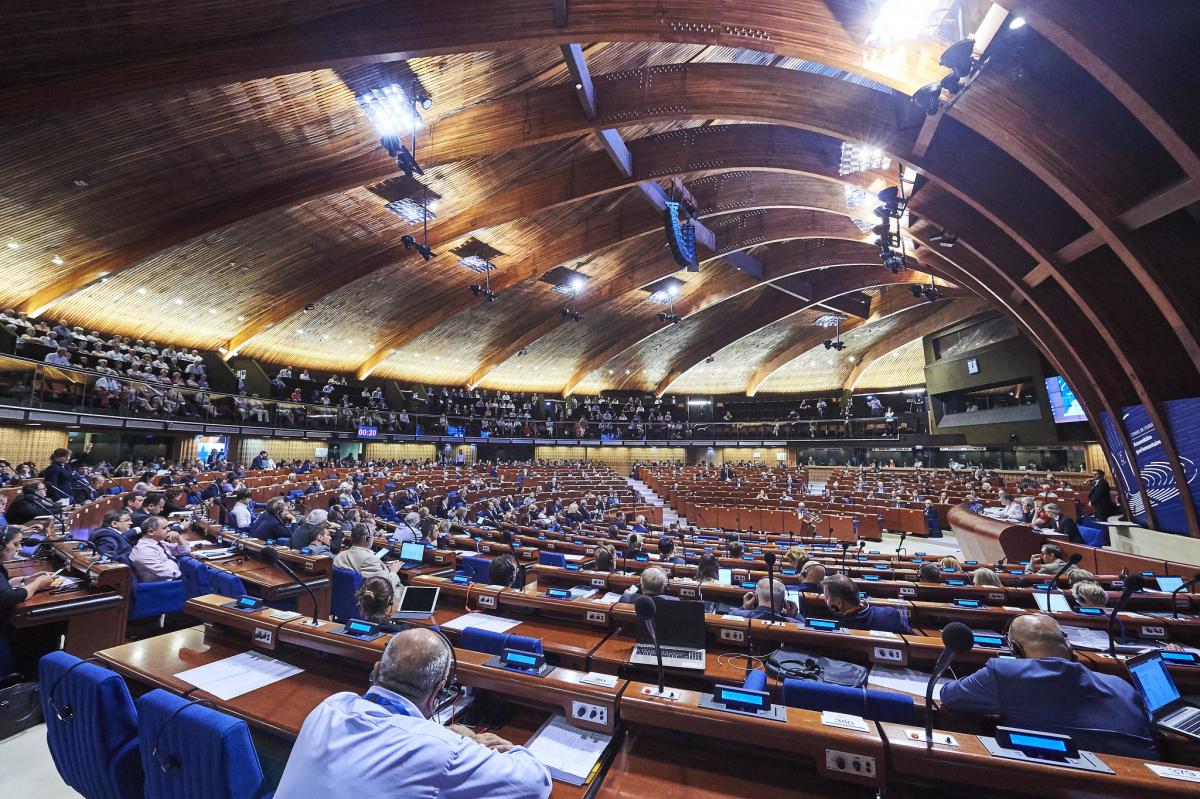
Russia is trying to set a precedent of allowing access of representatives of unrecognized states to various international platforms.
If the plan succeeds, separatist movements around the world, especially in Europe, will be given a free hand to lay claim to participation in any international platform, and subjectivity in foreign policy, IGTDS think tank reports.
Ulrich Oehme, a Russian lobbyist in the Bundestag, launched an initiative at the Council of Europe aimed to set up talks between the unrecognized "republics" of Ukraine's Donbas and the country's central government in Kyiv, as well as to give the de facto Russian-controlled Donetsk and Lugansk the opportunity to voice their position at the Council of Europe. The PACE delegate believes that a very important participant – "certain areas" of Donetsk and Lugansk regions – is lacking in the Normandy format of talks which now involves valid states – Germany, France, Russia, and Ukraine.
An initiative to bring the unrecognized entities into talks was also discussed within the Alternative for Germany (AfD) faction, widely supported by Russia.
Ulrich Oehme says he intends to engage more Bundestag and PACE members on the initiative.
The point is, the think tank underlines, that the initiative was never conceived by the AfD deputy.
Read alsoPro-Russian act by German delegate to PACE
In fact, he has voiced and is now promoting the Kremlin's strategy to legitimize occupied and unrecognized territories.
Oehme is likely to be oblivious to the fact that he is being exploited, although the level of his Russia contacts and ties suggests a possibility of him acting at Russia's direct request, the analysts say.
Sources in Ukrainian diplomatic circles in the United States and Canada have told IGTDS this approach will give a chance of presenting Russian puppet regimes in the east of Ukraine as independent political actors and shift public perception of war in Ukraine to the level of an "internal conflict". This will enable Russia to steer clear of the charges of occupying parts of Ukraine and then channel similar rhetoric to other territories occupied by Russia, such as Abkhazia, South Ossetia, and Transnistria. Over the past five years, Moscow has been pro-actively and openly supporting separatist regimes in Europe, Africa, and Americas, providing them with media platforms in Russia.
The Kremlin believes the effort to legitimize self-styled "republics" as independent actors will pave way for Russia to get sanctions lifted and set a precedent where further possible acts of aggression against neighboring countries, like Belarus, or a further military expansion in Ukraine, will be considered in the scope of internal conflicts boiling within those countries' borders.
However, in their comments to IGTS, European security and defense experts, including from France, Spain, Romania, and Italy, voiced concerns that such strategy would allow Russia to influence the European policy more effectively through bringing separatist movements to international platforms and giving them weight in EU, for example, those in Catalonia or Corsica.
Therefore, strategic plans voiced by Ulrich Oehme are obviously meant to create a fragmentation mechanism for the Western European states, Africa and Americas, by exploiting international and regional organizations, rather than just targeting Ukraine.
As soon as the separatist movements get their say at such organizations as the PACE, the Council of Europe, or the United Nations and to convey "their own opinions", this will set a precedent where such movements and groups will be empowered to put pressure on sovereign governments, while third parties will get wider opportunities to destabilize democracies using hybrid tools.
Read alsoRussian delegation's credentials appealed at PACE
For example, Moscow may retry to destabilize the situation in Romania by bringing the so-called "political activists" representing the Székely Land, territory inhabited by the Hungarian minority to the regional platforms at the PACE and the Council of Europe. The Kremlin may also test scenarios of internal conflicts within NATO member states by setting introductory notes hampering the Alliance (or the EU) forces' efforts to resolve the issue and raising doubts about the effectiveness of major security institutions in the region and across the world.

